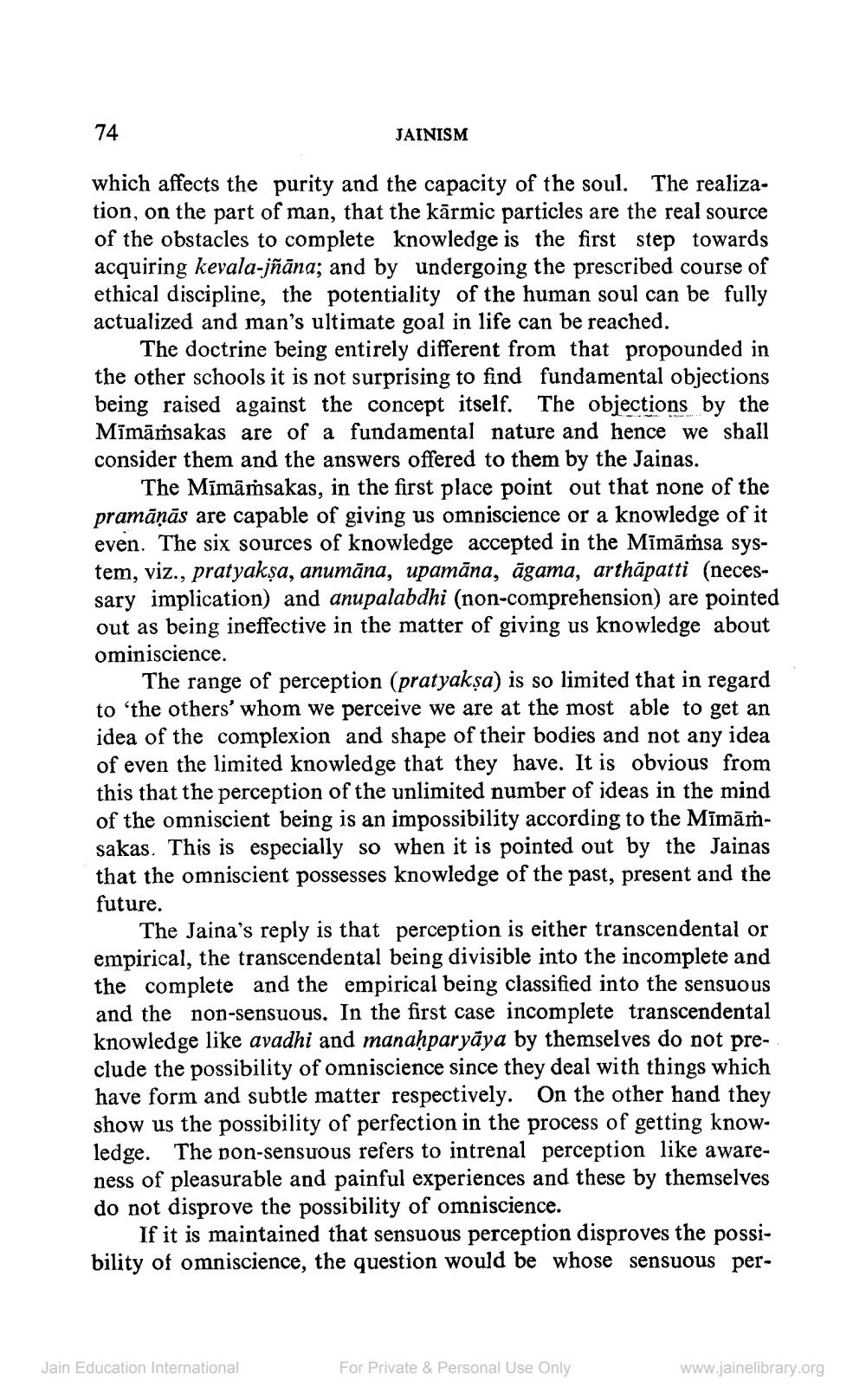________________
14
JAINISM
which affects the purity and the capacity of the soul. The realization, on the part of man, that the kārmic particles are the real source of the obstacles to complete knowledge is the first step towards acquiring kevala-jñāna; and by undergoing the prescribed course of ethical discipline, the potentiality of the human soul can be fully actualized and man's ultimate goal in life can be reached.
The doctrine being entirely different from that propounded in the other schools it is not surprising to find fundamental objections being raised against the concept itself. The objections by the Mīmāṁsakas are of a fundamental nature and hence we shall consider them and the answers offered to them by the Jainas.
The Mīmāṁsakas, in the first place point out that none of the pramāņās are capable of giving us omniscience or a knowledge of it even. The six sources of knowledge accepted in the Mīmāṁsa system, viz., pratyakşa, anumāna, upamāna, āgama, arthāpatti (necessary implication) and anupalabdhi (non-comprehension) are pointed out as being ineffective in the matter of giving us knowledge about ominiscience.
The range of perception (pratyakşa) is so limited that in regard to 'the others' whom we perceive we are at the most able to get an idea of the complexion and shape of their bodies and not any idea of even the limited knowledge that they have. It is obvious from this that the perception of the unlimited number of ideas in the mind of the omniscient being is an impossibility according to the Mīmāṁsakas. This is especially so when it is pointed out by the Jainas that the omniscient possesses knowledge of the past, present and the future.
The Jaina's reply is that perception is either transcendental or empirical, the transcendental being divisible into the incomplete and the complete and the empirical being classified into the sensuous and the non-sensuous. In the first case incomplete transcendental knowledge like avadhi and manaḥparyāya by themselves do not preclude the possibility of omniscience since they deal with things which have form and subtle matter respectively. On the other hand they show us the possibility of perfection in the process of getting knowledge. The pon-sensuous refers to intrenal perception like awareness of pleasurable and painful experiences and these by themselves do not disprove the possibility of omniscience.
If it is maintained that sensuous perception disproves the possibility of omniscience, the question would be whose sensuous per
Jain Education International
For Private & Personal Use Only
www.jainelibrary.org




